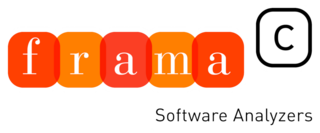Related Research Articles

David Lee Chaum is an American computer scientist, cryptographer, and inventor. He is known as a pioneer in cryptography and privacy-preserving technologies, and widely recognized as the inventor of digital cash. His 1982 dissertation "Computer Systems Established, Maintained, and Trusted by Mutually Suspicious Groups" is the first known proposal for a blockchain protocol. Complete with the code to implement the protocol, Chaum's dissertation proposed all but one element of the blockchain later detailed in the Bitcoin whitepaper. He has been referred to as "the father of online anonymity", and "the godfather of cryptocurrency".
Electronic voting is voting that uses electronic means to either aid or take care of casting and counting ballots including voting time.

Edward William Felten is the Robert E. Kahn Professor of Computer Science and Public Affairs at Princeton University, where he was also the director of the Center for Information Technology Policy from 2007 to 2015 and from 2017 to 2019. On November 4, 2010, he was named Chief Technologist for the Federal Trade Commission, a position he officially assumed January 3, 2011. On May 11, 2015, he was named the Deputy U.S. Chief Technology Officer. In 2018, he was nominated to and began a term as Board Member of PCLOB. Felten retired from Princeton University on July 1, 2021.
An absentee ballot is a vote cast by someone who is unable or unwilling to attend the official polling station to which the voter is normally allocated. Methods include voting at a different location, postal voting, proxy voting and online voting. Increasing the ease of access to absentee ballots is seen by many as one way to improve voter turnout through convenience voting, though some countries require that a valid reason, such as infirmity or travel, be given before a voter can participate in an absentee ballot. Early voting overlaps with absentee voting. Early voting includes votes cast before the official election day(s), by mail, online or in-person at voting centers which are open for the purpose. Some places call early in-person voting a form of "absentee" voting, since voters are absent from the polling place on election day.

In cryptography and computer science, a hash tree or Merkle tree is a tree in which every "leaf" node is labelled with the cryptographic hash of a data block, and every node that is not a leaf is labelled with the cryptographic hash of the labels of its child nodes. A hash tree allows efficient and secure verification of the contents of a large data structure. A hash tree is a generalization of a hash list and a hash chain.

Shlomi Dolev is a Rita Altura Trust Chair Professor in Computer Science at Ben-Gurion University of the Negev (BGU) and the head of the BGU Negev Hi-Tech Faculty Startup Accelerator.
Electronic voting in Estonia gained popularity in 2001 with the "e-minded" coalition government. In 2005, it became the first nation to hold legally binding general elections over the Internet with their pilot project for municipal elections. Estonian election officials declared the electronic voting system a success and found that it withstood the test of real-world use.

Aircrack-ng is a network software suite consisting of a detector, packet sniffer, WEP and WPA/WPA2-PSK cracker and analysis tool for 802.11 wireless LANs. It works with any wireless network interface controller whose driver supports raw monitoring mode and can sniff 802.11a, 802.11b and 802.11g traffic. Packages are released for Linux and Windows.

Robbert (Rop) Valentijn Gonggrijp is a Dutch hacker and one of the founders of XS4ALL.

The Uniformed and Overseas Citizens Absentee Voting Act (UOCAVA), P.L. 99-410, 52 U.S.C. §§ 20301–20311, 39 U.S.C. § 3406, 18 U.S.C. §§ 608–609, is a United States federal law dealing with elections and voting rights for United States citizens residing overseas. The act requires that all U.S. states, the District of Columbia, Puerto Rico, Guam, American Samoa, and the U.S. Virgin Islands allow certain U.S. citizens to register to vote and to vote by absentee ballot in federal elections. The act is Public Law 99-410 and was signed into law by President Ronald Reagan on August 28, 1986.
Prêt à Voter is an E2E voting system devised by Peter Ryan of the University of Luxembourg. It aims to provide guarantees of accuracy of the count and ballot privacy that are independent of software, hardware etc. Assurance of accuracy flows from maximal transparency of the process, consistent with maintaining ballot privacy. In particular, Prêt à Voter enables voters to confirm that their vote is accurately included in the count whilst avoiding dangers of coercion or vote buying.
Electronic voting by country varies and may include voting machines in polling places, centralized tallying of paper ballots, and internet voting. Many countries use centralized tallying. Some also use electronic voting machines in polling places. Very few use internet voting. Several countries have tried electronic approaches and stopped because of difficulties or concerns about security and reliability.

Frama-C stands for Framework for Modular Analysis of C programs. Frama-C is a set of interoperable program analyzers for C programs. Frama-C has been developed by the French Commissariat à l'Énergie Atomique et aux Énergies Alternatives (CEA-List) and Inria. It has also received funding from the Core Infrastructure Initiative. Frama-C, as a static analyzer, inspects programs without executing them. Despite its name, the software is not related to the French project Framasoft.
ProVerif is a software tool for automated reasoning about the security properties of cryptographic protocols. The tool has been developed by Bruno Blanchet and others.
Post-quantum cryptography (PQC), sometimes referred to as quantum-proof, quantum-safe, or quantum-resistant, is the development of cryptographic algorithms that are currently thought to be secure against a cryptanalytic attack by a quantum computer. Most widely-used public-key algorithms rely on the difficulty of one of three mathematical problems: the integer factorization problem, the discrete logarithm problem or the elliptic-curve discrete logarithm problem. All of these problems could be easily solved on a sufficiently powerful quantum computer running Shor's algorithm or even faster and less demanding alternatives.

J. Alex Halderman is professor of computer science and engineering at the University of Michigan, where he is also director of the Center for Computer Security & Society. Halderman's research focuses on computer security and privacy, with an emphasis on problems that broadly impact society and public policy.
Infer, sometimes referred to as "Facebook Infer", is a static code analysis tool developed by an engineering team at Facebook along with open-source contributors. It provides support for Java, C, C++, and Objective-C, and is deployed at Facebook in the analysis of its Android and iOS apps.
Electronic voting in Switzerland started in 2003 in the canton of Geneva, where the residents of Anières cast their vote using the Internet. This was the first trial of e-voting in Switzerland. In the following years, the number of people able to use electronic voting grew as more and more cantons began adopting such a system.
Hard privacy technologies are methods of protecting data. Hard privacy technologies and soft privacy technologies both fall under the category of privacy-enhancing technologies. Hard privacy technologies allow online users to protect their privacy through different services and applications without the trust of the third-parties. The data protection goal is data minimization and reduction of the trust in third-parties and the freedom to conceal information or to communicate.
Aggelos Kiayias is a Greek cryptographer and computer scientist, currently a professor at the University of Edinburgh and the Chief Science Officer at Input Output Global, the company behind Cardano.
References
- ↑ The Netherlands Parliamentary Elections, 22 November 2006, OSCE Office for Democratic Institutions and Human Rights, 12 March 2007, Warsaw; pages 14-15.
- ↑ Rop Gonggrijp (2006-12-27). "We don't trust voting computers". 23rd Chaos Communication Congress (23C3). Retrieved 2012-11-05.
- ↑ Jacobs, B.; Pieters, W. (2009). "Electronic Voting in the Netherlands: From Early Adoption to Early Abolishment". Foundations of Security Analysis and Design V. Lecture Notes in Computer Science. Vol. 5705. p. 121. doi:10.1007/978-3-642-03829-7_4. ISBN 978-3-642-03828-0.
- ↑ Hubbers, Engelbert; Jacobs, Bart; Pieters, Wolter (2005). "RIES: Internet voting in action" (PDF). Proceedings of the 29th Annual International Computer Software and Applications Conference, COMPSAC'05. IEEE Computer Society.
- ↑ "The Netherlands". Broken Ballots. 2012. Retrieved 2012-11-05.
- ↑ Gonggrijp, R.; Hengeveld, W. J.; Hotting, E.; Schmidt, S.; Weidemann, F. (2009). "RIES - Rijnland Internet Election System: A Cursory Study of Published Source Code". E-Voting and Identity. Lecture Notes in Computer Science. Vol. 5767. p. 157. doi:10.1007/978-3-642-04135-8_10. ISBN 978-3-642-04134-1.